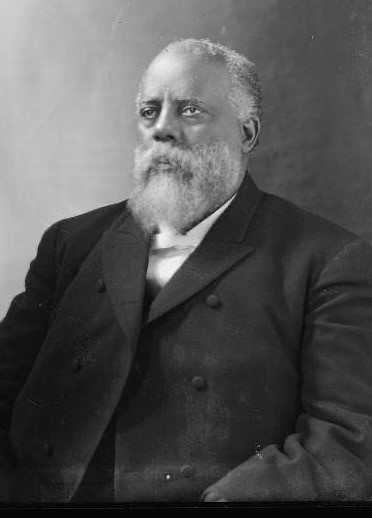Bishop Morris Brown
Morris Brown College, founded in 1881 by the African Methodist Episcopal Church, is a private, coeducational, liberal arts college engaged in teaching and public service with special focus in leadership, management, entrepreneurship and technology. The College is proud of its tradition of serving the educational needs of the best and brightest young minds, while simultaneously providing educational support to students who might not otherwise receive the opportunity to compete on the college level. Students fitting the latter are given the tools they need to increase their potential for earning a college degree.
This is a formula that has proven itself time and again. Among our outstanding alumni are Isaac Blythers, former President of Atlanta Gas Light Company; Eula L. Adams, Executive Vice President for First Data Corporation; Albert J. Edmonds, Retired Lieutenant General of the United States Air Forces; the late Reverend Dr. Hosea Williams, civil rights leader; Thomas J. Byrd, actor of television, film and stage; and Pulitzer prize-winning author, James A. McPherson. Adams and Edmonds were cited by Fortune Magazine among the nation’s top African-American corporate executives. The list of our graduates and their accolades go on and on.
History of the Institution
The circumstances that evoked the founding of Morris Brown are traditionally linked to a visit by a group of Clark College trustees to Big Bethel Church to interest the African Methodist Episcopal (AME) Church supporters in furnishing a room in their institution. In response to the proposition they presented, layman Steward Wiley said, “If we can furnish a room at Clark College, why can’t we build a school of our own?” These words ignited a flame in the mind of Reverend Wesley John Gaines who went on to become Founder of Morris Brown College. On January 5, 1881, during the North Georgia Annual Conference at Big Bethel, he introduced a resolution calling for the establishment in Atlanta of an institution for the moral, spiritual and intellectual growth of Negro boys and girls. The steps between the resolution and the opening were few and simple: the Georgia Conference was persuaded to join the endeavor. An assembly of trustees from both conferences convened at Big Bethel Church and selected the Boulevard site as the school’s home. In May of 1885, the State of Georgia granted a charter to Morris Brown College of the AME Church.
On October 15, 1885, just 20 years after Abraham Lincoln signed the Emancipation Proclamation, 107 students and nine teachers walked into a crude wooden structure at the corner of Boulevard and Houston Streets in Atlanta, Georgia, marking the opening of the first educational institution in Georgia under sole African-American patronage. That institution was Morris Brown College, named to honor the memory of the second consecrated Bishop of the African Methodist Episcopal (AME) Church.


